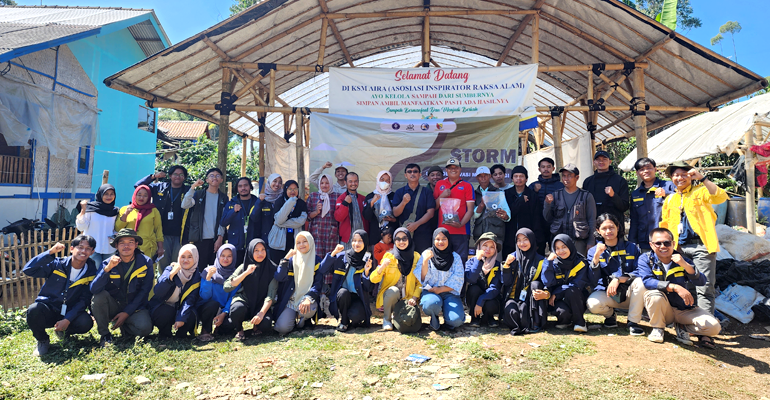Himagreto IPB University Develops Sustainable Energy Based on Coffee Skin Waste

The Agrometeorology Student Profession Association (Himagreto) IPB University conducted training in making briquettes as one of the sustainable energy based on coffee skin waste in Pulosari Village, Pangalengan District, Bandung Regency. This training was carried out as one of the series of Meteorological Observation Study (STORM) 2023 activities.
Rizka, a representative of Himagreto IPB University, said that the training on making briquettes aims to answer the problem of waste, especially coffee skin waste which is abundant in Pulosari Village. This is because Pulosari Village is one of the coffee producing areas in West Java.
“Coffee is one of the main commodities in Pulosari Village. It is not surprising that coffee skin is one of the most abundant wastes produced in the village. Hopefully, with this training, Pulosari villagers can manage coffee skin waste into products with economic value and as an effort to mitigate climate change,” she said.
She revealed that the community’s confusion in overcoming the problem of coffee skin waste has been answered through briquette-making training provided by IPB University students, especially Himagreto.
This training began with the delivery of material on the types of waste, the introduction of briquettes and continued with a demo or practice with the trainees. Furthermore, the activity ended with a discussion session which was responded to enthusiastically by community members.
According to Heri, one of the participants said that this kind of training is very useful for the community. IPB University students not only provide knowledge, but share with the community about the training provided. “This makes us feel comfortable and we gain new knowledge on how to manage wastes that are often thrown away and not utilized,” he said. (IAAS/Hap)



